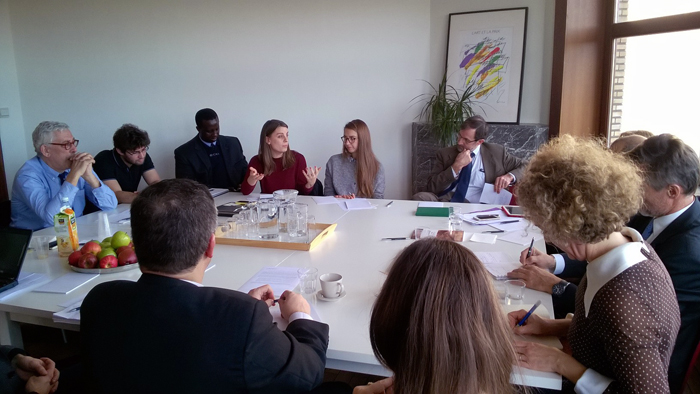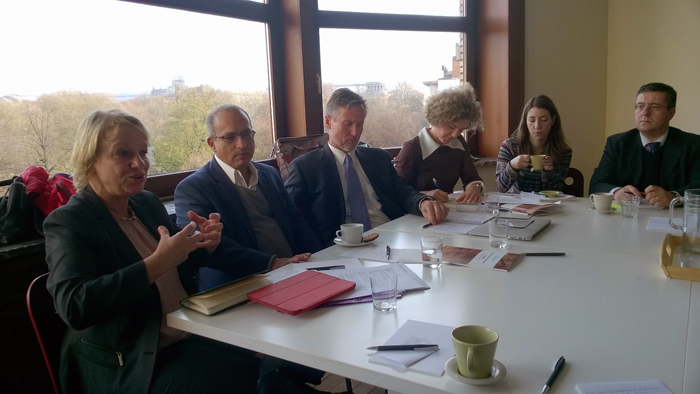Perspectives on the Yemeni crisis and prospects for peace
Event held by CMI in December provided insights into the Yemeni crisis and explored meaningful ways to assist conflict resolution efforts.

Importance of confidence-building at all levels of the Yemeni society, involvement of local communities in peacemaking efforts as well as continued support for women’s participation in conflict resolution were among the issues highlighted by the participants.
On 8 December 2015, CMI organised a roundtable discussion on the Yemeni conflict and its regional dimensions. The event titled “Perspectives on the Yemeni Crisis and Prospects for Peace” brought together analysts, policymakers and representatives of NGOs to engage in discussion on the underlying causes of the ongoing war, reflect on the potential repercussions of the conflict for Yemen’s political future and to explore ways to advance conflict resolution and reconciliation at different levels of the society.
The panellists were Abdul-Ghani Al-Iriyani, Ceasefire Design Expert with UNOPS, Bettina Muscheidt, Head of EU Delegation to Yemen and Antonia Potter Prentice, CMI’s Senior Manager on Gender, Inclusion and Mediation Support. The discussion was moderated by Andrew Marshall, Senior Advisor on Dialogue and Mediation at CMI. The event was held at CMI Brussels office.

The panellists emphasised the urgent need to end fighting and resume dialogue engaging all sides. From left, Bettina Muscheidt, Abdul-Ghani Al-Iriyani, Andrew Marshall and Antonia Potter Prentice.
Below are some of the findings and recommendations that emerged from the discussion. Read the full summary of the discussion here.
- Amid growing polarisation, there are few actors that are trusted by and able to engage with all political groups. Against this background, creation of an entity involving actors from across conflict divides was suggested. With access to opposing sides, such entity has the potential to build trust and enhance communication between antagonistic political groups.
- Inclusiveness should be a priority in the conflict resolution efforts from the start. It was noted that not all entities have to be directly represented; there are different mechanisms for incorporating the views and priorities of different groups in the peace process. Particular attention should be paid to ensuring significant, yet fragile gains made on women’s participation during the political transition period will not be lost.
- National-level peace process needs to be accompanied by confidence-building and reconciliation measures in and between local communities. Mitigating tensions at the local level is essential for ensuring broader buy-in for any agreements reached in the national talks.
- Local-level conflict resolution mechanisms play an important role in reducing tensions and conflict affecting local communities. They can also assist in filling the governance and security vacuum that is expected to persist for some time to come given the time required for building functioning state institutions. Therefore, international actors should seek to strengthen local initiatives in parallel to assisting the national peacemaking efforts.
- The future political process should be anchored in specific goals and a clear timeline. After the conclusion of the talks, swift implementation of the agreements is critical in order to prevent re-emergence of tensions.
- Delivering concrete improvements in the daily lives of the population during the negotiations plays an important role in strengthening the legitimacy of the political process and the broader political system.
- The recommendations of the National Dialogue Conference (NDC) are broadly acceptable to Yemenis from across the political spectrum and, once the immediate conflict is resolved, can provide a basis for further negotiations on political, economic and social reforms. For the NDC outcomes to retain their acceptability, the most contested issues should, however, be revisited.